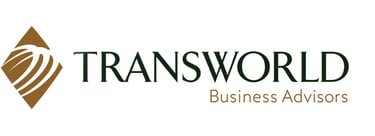| Local Presence | | Global Outreach |
(407) 893-1627 alawson@tworld.com
Your #1 Central Florida Business Broker
Mastering Business Valuations: Essential Tips and Strategies
At Adam Lawson LLC, we offer expert business valuation services, spearheaded by specialists like Adam. He provides complimentary valuations for business owners considering a sale. For more intricate valuations required in legal, financial, or personal circumstances, Adam can conduct in-depth, fee-based evaluations.
Call Adam at 407-893-1627 to make an appointment.
Fair Market Value: The price agreed upon by a willing buyer and seller, both informed and not compelled to transact.
Intrinsic Value: Typically used for stock valuation.
Fair Value: Employed for legal purposes, often in divorce cases.
Investment or Strategic Value: Specific to individual buyers, potentially exceeding fair market value.
Different Valuation Standards
Focus on Fair Market Value: For our purposes, we primarily consider fair market value, which reflects what a buyer would pay in an open market. However, this is a simplification of complex valuation practices, which can include detailed reports for legal, tax, and financing purposes, costing between $10,000-$30,000. In most small business sales, such extensive valuations aren't necessary, and simpler methods can effectively estimate the sale price.
Three Main Valuation Approaches:
Asset Approach: Balancing assets against liabilities. This approach may not fully represent an ongoing business with positive earnings.
Market Approach: Similar to real estate comparables, based on industry and size.
Income Approach: Focused on the present value of future income streams.
Multiple of Past Earnings: The value is often a multiple of past earnings, assuming the buyer will maintain these levels post-purchase.
What to Multiply:
For small businesses (less than $1 million in earnings), we use owner's benefit (net income, depreciation, interest, owner's salary, and benefits).
For larger businesses, EBITDA (Earnings Before Interest, Taxes, Depreciation, and Amortization) is used.
Determining Multiples: Multiples can range based on factors like company size, book quality, growth potential, and profitability. Lower multiples are for businesses with poor records or prospects, while higher multiples are for those with strong growth and solid financials.
Multiplying earnings by an industry-specific multiple.
Capitalizing net profit.
For businesses with minimal profits, asset value might be the sole determinant.
Consulting a specialist like Darrell Jones can provide more specific guidance.
Location, size, competition, growth rates, industry trends, quality of books, ease of transfer, and the terms of the sale are among the factors affecting value.
The Subjectivity of Valuation
Ultimately, the sale price is determined by the buyer, making the valuation subjective and variable.
Summary of Business Valuation
For a more comprehensive understanding and precise valuation, it's advisable to consult with a specialist like Adam, who can offer a quick ballpark estimate. As you focus on enhancing your business's profitability, Adam will guide you through the sales process.


